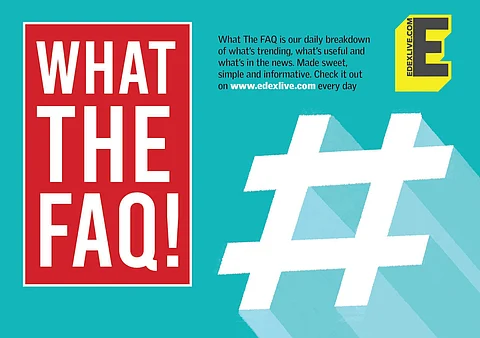

Since the evening of July 18, Pegasus has been flooding social media platforms, most news headlines and primetime shows and has also made it to the Lok Sabha on the first day of the Monsoon Session as well. We will try to decode, very simply, what the spyware does, who were affected and why the opposition has been blaming the Modi government for its use.
What is Pegasus?
It is spyware developed by an Israeli firm, NSO, which once activated can, reportedly, have access to almost everything on your phone. It can not just access data, but can also listen in to conversations access your camera even when you are not on a call or not taking a picture. It has been reported that Pegasus can access everything on your phone — from your emails to photos and videos to even encrypted calls made on software like WhatsApp. And that was the reason why WhatsApp had filed a case against them earlier and names of Indian individuals had come up.
How much does it cost?
As per data from 2016, NSO Group charges at least Rs 9 crore to snoop on just 10 people using Pegasus. The installation itself takes $500,000 (Rs 3.75 crore) while the snooping cost is $650,000 (Rs 4.84 crore at the current exchange rate) for 10 devices. If the reports were true, over 300 phone numbers of ministers, journalists, activists, businessmen from India could have been hacked. That's Rs 270 crore in total.
Who all have been named in the latest list?
Former Congress chief Rahul Gandhi, BJP ministers Ashwini Vaishnaw and Prahlad Singh Patel, former election commissioner Ashok Lavasa and poll strategist Prashant Kishor were among those whose phone numbers were listed as potential targets for hacking through an Israeli spyware sold only to the government agencies, an international media consortium reported on Monday. The number of Vaishnav, who recently became a minister, was among the 300 verified Indian numbers listed as potential targets for surveillance during 2017-2019 by a client of the Israel-based NSO Group, The Wire said. Releasing the fresh tranche of investigation, The Wire said at least two mobile phone accounts used by former Congress chief Rahul Gandhi were listed as potential targets. Gandhi's phones are not among those examined as he no longer has the handsets he used at the time that his numbers appear to have been selected for targeting - from mid-2018 to mid-2019, the report said. In the absence of forensics, it is not possible to conclusively establish whether Pegasus was deployed against Gandhi, it said.
The Wire, in the second part of its revelations from the international collaborative investigation called the Pegasus Project, reported that the phone number of West Bengal Chief Minister Mamata Banerjee's nephew and TMC MP Abhishek Banerjee and 11 phone numbers belonging to the Supreme Court staffer and her close relatives, who accused former Chief Justice of India Ranjan Gogoi of sexual harassment in April 2019, were selected as targets for surveillance.
Apart from ministers and politicians, the names of journalists like Siddharth Varadarajan, Rohini Singh, Prashant Jha and many others came up in the list of those whose phones had the spyware along with various activists. Virologist Gangandeep Kang's number was also on the list.
What did the government say?
The government obviously dismissed the media reports on the use of Pegasus software to snoop on Indians, saying the allegations levelled just ahead of the Monsoon session of Parliament are aimed at "maligning Indian democracy". In a suo motu statement in Lok Sabha, IT and Communications Minister Vaishnaw, whose name was also there in the list, said that with several checks and balances being in place, "any sort of illegal surveillance" by unauthorised persons is not possible in India. A political slugfest ensued outside Parliament with the Congress and the BJP trading blows over the issue. While the Congress demanded the sacking of Home Minister Amit Shah and a probe into the "role" of Prime Minister Narendra Modi in the matter, the BJP hit out at the Opposition party over its attack and claimed that there is not a "shred of evidence" to link either the ruling party or the Modi dispensation with the matter.
Home Minister and Minister of Cooperation, Amit Shah said that "disruptors and obstructers will not be able to derail India's development trajectory through their conspiracies" and asserted that the report has been "amplified by few with only one aim — to humiliate India at world stage".
Why are the questions targeted towards the government?
It is not random. The NSO, whose statement even the IT minister quoted, has reportedly said that they only sell their spyware to "vetted governments" to make sure it is not used for terrorist activities. The logic behind pointing fingers at the government is that if the numbers of Indians are on the list and the NSO does not sell the software to anybody but the government, then it must be the government. But there's another possibility that Dr Shashi Thaoor pointed out in an interview — it might also be any other government snooping on Indians and even n that case, there needs to be a thorough investigation which the government needs to initiate. The government, until now has neither outright denied using the software or launched an investigation.
